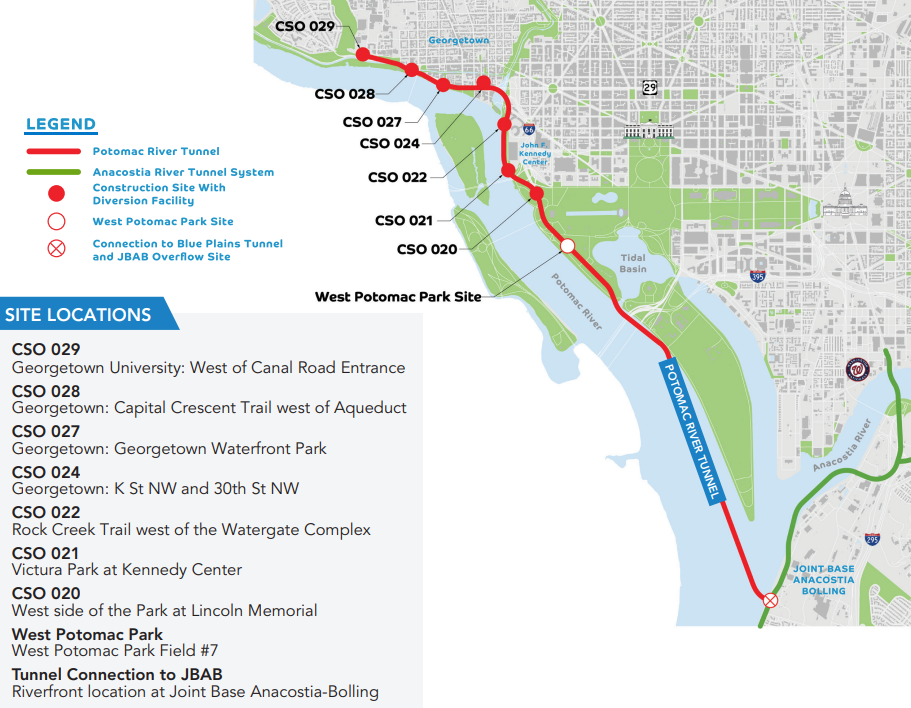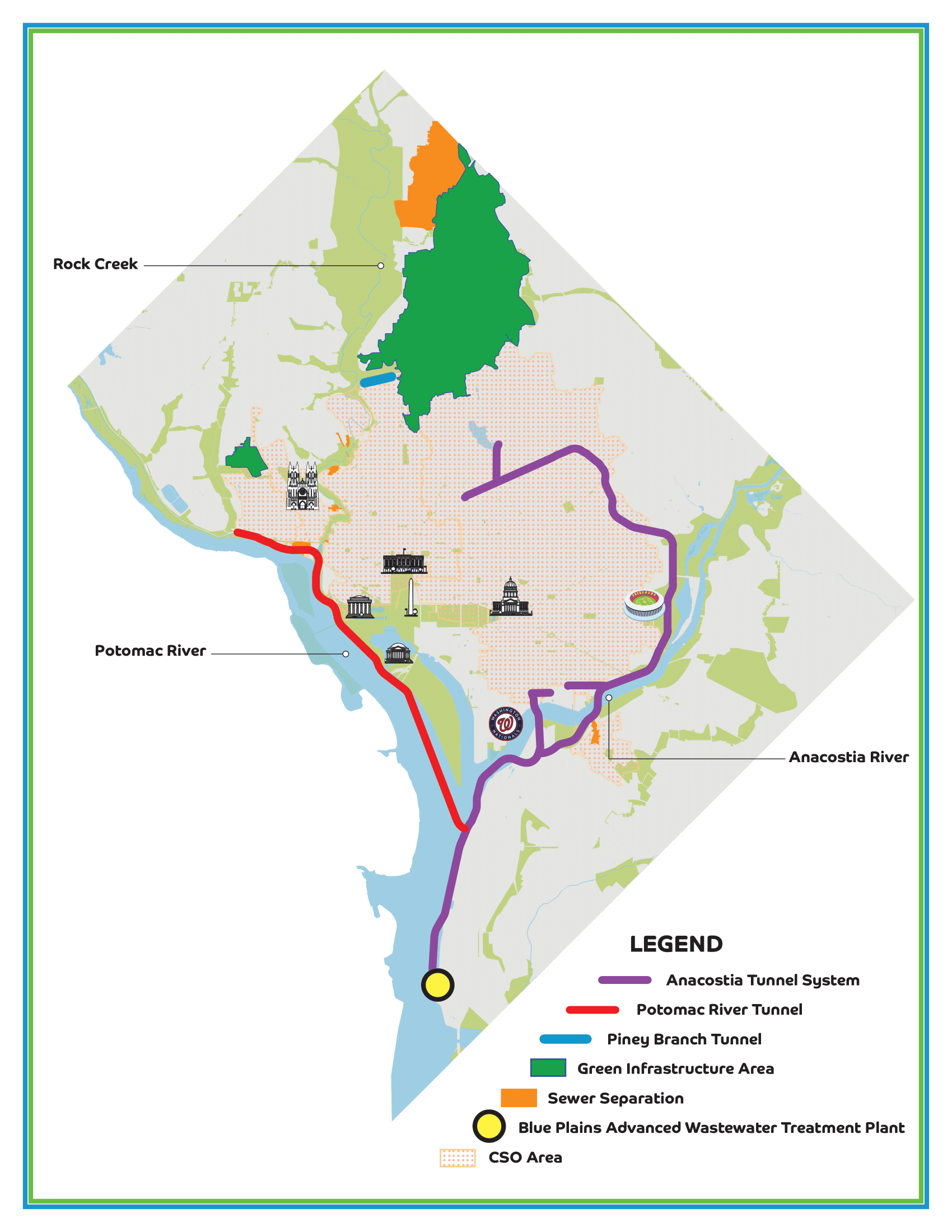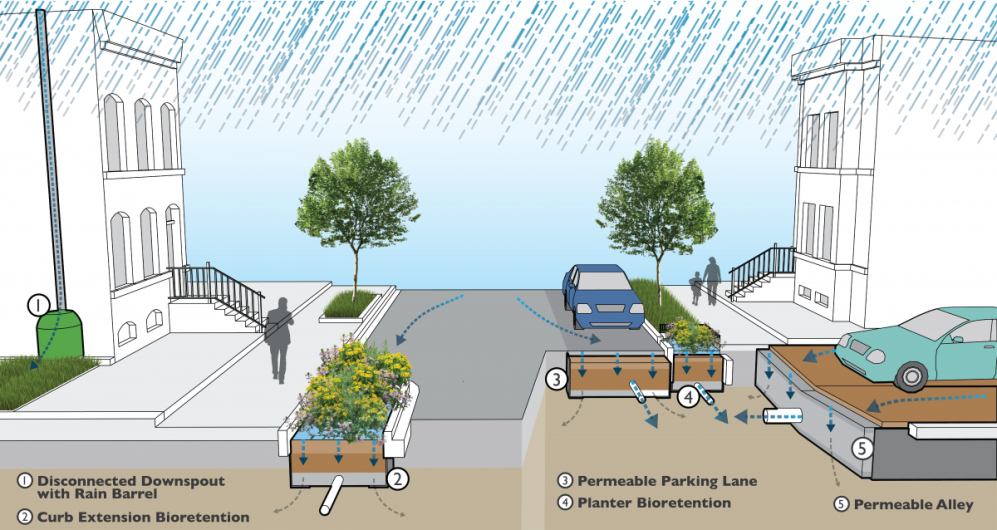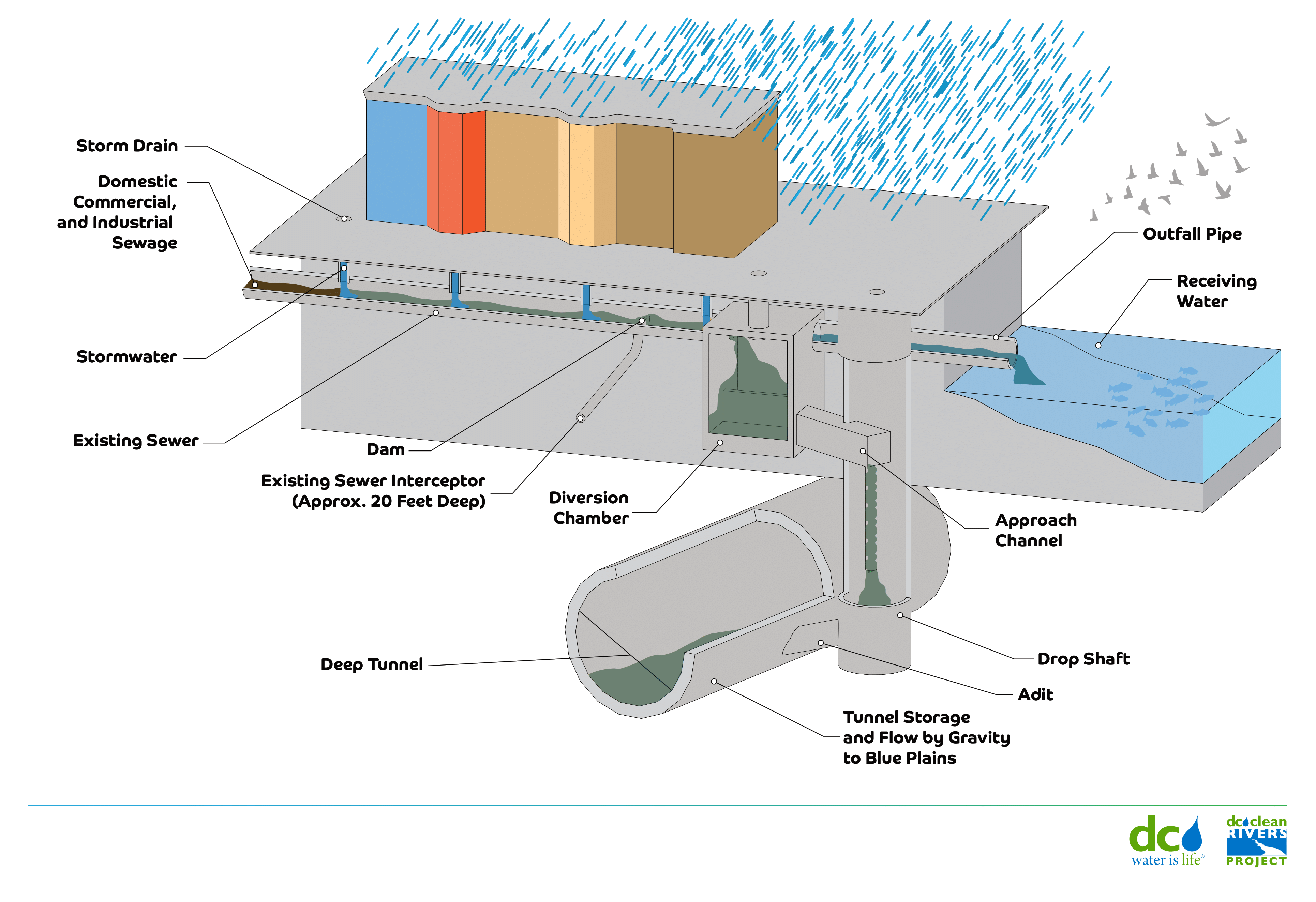Clean Rivers Project
DC Water’s Clean Rivers Project
Everything you need to know about the Clean Rivers Project and how it affects...
your water
your neighborhood
your rivers
your life
The Clean Rivers Project is DC Water's ongoing program to reduce combined sewer overflows (CSO's) into the District's waterways - the Anacostia and Potomac Rivers and Rock Creek. The Project is a massive infrastructure program designed to capture and clean wastewater during rainfalls before it ever reaches our rivers.
Clean Rivers Projects
The DC Clean Rivers Project will reduce CSOs in an average rainfall year by 96 percent system-wide. Reductions will be 98% for the Anacostia River, 93% for the Potomac River and 90% for Rock Creek. In addition, the Project will reduce the chance of flooding in chronically impacted areas in Northeast Boundary from approximately 50 percent to 7 percent (equivalent to a 15-year storm) in any given year and reduce nitrogen discharged to the Chesapeake Bay by approximately 1 million pounds per year.

Canal Road NW Slope Stabilization Project
Ensuring safety on Canal Road NW

Green Infrastructure
Green Technologies for the District

Piney Branch Tunnel
Storing overflows from CSO 049

Potomac River Tunnel Project
CSO Relief for Potomac River
Keep Up to Date With the Project

Call our
Outreach
Coordinators
-

202-787-4400










Do you have a question or comment?